Snowdrops for the Bairns - How Scotland saved the UK's children from America's fate
"The UK has the Scottish mums and the Dunblane families to thank for making their nation safer for its children." Donna Dees
My daughter, Kira, and I attended the UK premiere of Snowdrops for the Bairns on November 23rd at the Dunblane Centre. This short documentary film was made by my friend, Donna Dees, a longtime US gun violence prevention (GVP) activist. We met 24 years ago when she was organising the Million Mom March on Washington, DC. The March took place on a sunny warm day in May, 2000, American Mother’s Day, and I was there with 4-year-old Kira. Three years before, I had lost my older brother, Greg, to a senseless act of gun violence.
With Donna’s encouragement, I went on to become a GVP activist, first as a volunteer with the Million Mom March, then as leader of two state GVP groups in Maryland and New York.
I’ve always been in awe of what the people of Dunblane accomplished after their unspeakable tragedy in 1996. It was their passion and perseverance that pushed the UK Parliament to enact some of the strongest gun laws in the world, laws that will protect the UK and its children from America’s fate.
Donna’s film is about the power of ordinary people to forge positive change. It’s a message Scotland needs to hear now more than ever.
LGB: Why did you make this film?
DD: In October of 2022, I was invited to speak at a private event at the House of Commons celebrating the 25th anniversary of the UK gun law — the one which has made that nation one of the safest in the western world. I do not know what possessed me to accept that invitation as I detest public speaking and I hate to travel. But I went. Mostly because I have always wanted to meet the women who started the Snowdrop Petition — particularly Ann Pearston.
Although I have nothing professionally in common with Ann, her motivation for starting the petition in 1996 was so similar to my experience in launching the Million Mom March in 1999. That’s when I applied for a permit to march on Washington, DC on Mother’s Day 2000. I wanted to prove to Congress that we mothers were outraged over children getting shot from our nation’s unfettered access to firearms. Three Scottish mums from Dunblane spoke at the Million Mom March which is why I have always kept their children close to my heart.
In my brief speech at the Parliament event, I remarked how most people have no real appreciation for the critical role grassroots plays in passing tough gun laws. After the event, Jack Crozier, whose sister was murdered in the Dunblane massacre, lamented how the documentaries on Dunblane barely mention the Snowdrop Campaign. Jack also suggested I read Dunblane: Never Forget, by Mick North who lost his daughter, Sophie. I did. It was a beautifully written detailed accounting of their campaign. I knew that someone needed to make a documentary about it but I wasn’t really sure then it would or should be me.
In March of 2023, Mick North invited me to speak at yet another event celebrating the 25th anniversary of the passage of their law. This time in Dunblane. I went on the condition that I could interview the Snowdrop Petitioners with the intention of archiving their stories as teachable moments. American activists could learn so much from why they succeeded when so many of our efforts fail. These interviews became my documentary short “Snowdrops for the Bairns.”
My goal is to get it screened at film festivals and by non-profits in America. So far it’s been screened by several American universities and a handful of film festivals including the Nevada Women’s film festival in June 2024 where it won Best Short Documentary.
LGB: Would the UK parliament in Westminster have passed this legislation without the grassroots Snowdrop Campaign led by Scotland’s women?
DD: No. And I’m reasonably sure Congress would not have passed the Brady Bill or the 10-year-ban on Assault Weapons in the 1990s had it not been for the grassroots muscle behind those bills. But the 1990s American activists, mostly women, were written out of history shortly after the historic passage of those two bills — both considered bold at the time.
In my 2004 memoir/guidebook, Looking for a Few Good Moms: How One Mom Rallied a Million Others Against the Gun Lobby, I gave these ladies — the midwives of the GVP movement — the credit they deserve. We post-Columbine mother activists were standing on their shoulders. This is why we managed to pass numerous state gun safety laws in the weeks leading up to and following the Million Mom March.
LGB: Why did this campaign succeed when similar campaigns in the US after several devastating school and other high profile shootings have failed? Is the US just too big to legislate on a federal level to prevent gun violence? Is it because there is the 2nd Amendment? Is it the influence of special interest money in the US political system? A combination of all these?
DD: Like American activists, the Snowdrop Campaigners also faced a fierce gun lobby.
The Scottish mums countered by out-organizing the opposition with a legitimate, highly-publicized, bold petition that was actually hand-delivered to individual members of Parliament by dozens of real, ordinary voting citizens.
The Snowdrop Campaigners captured the imagination and the buy-in of their fellow UK citizens by not overwhelming them, the media or their elected officials with a myriad of proposals. They pushed for one law. That’s it. In America, we take the opposite, ineffective labor intensive approach at the federal level. We are inundated with a dozen or so bills that can confuse and exhaust our fragile, grassroots network. As a seasoned grassroots organizer, I personally would rather advocate for one, big, bold goal, such as Sen. Elizabeth Warren’s bill (the Gun Violence Prevention and Community Safety Act).
While incrementalism is important, particularly at the local and state level, we need to have a stronger, more engaged grassroots activists advocating for the boldest measure possible. Again, in my opinion, that is Sen. Warren’s bill which includes a “permit-to-purchase” requirement advocated by the smartest in the gun violence prevention movement as being necessary to drastically reduce gun violence.
LGB: In the film it was said the legislation passed under a Tory government, when it actually passed under the Labour government after it came into office in 1997.
DD: Yes, my film starts off with the a clip of a media commentator giving credit to the Tory government for the banning of high caliber firearms after the Dunblane school shooting. The clip is from a cable news story on the 2022 school shooting in Nashville. But the media completely ignores that it was the un-relenting efforts of the Snowdrop Campaigners that led to that partial ban and then the full ban after they refused to give up on their boldest goal. The Snowdrop Campaigners went for the full ban after Labour Party won in 1997, and they got it. That is included in my film.
LGB: As someone who has been living in Scotland since 2017, why the subtitle, "How the UK saved its children from America's Fate?" Wouldn’t it be more accurate to say "How Scotland saved the UK's children from America's Fate?"
DD: I created this film for an American audience, hence the title. My film ends with a postscript from the US surgeon general report of 2024 citing that American young people die at nearly 73x the rate of their UK counterparts. The UK has the Scottish mums and the Dunblane families to thank for making their nation safer for its children.
LGB: What lessons can American activists learn from Scotland?
DD: I volunteer for and donate to numerous gun control organizations at both the state and national level. These organizations do important, complicated, necessary and thankless work. Most do not prioritize the boldest of federal legislation, such as Senator Warren’s bill that contains all the elements of good policy short of banning firearms, with the exception of assault weapons.
The Snowdrop Campaigners were bold. Their petition was legitimate and actually delivered to members of Parliament by ordinary UK citizens. I am hesitant to criticize the myriad of fundraising “petitions” that I receive on a daily basis from American gun control organizations because the movement needs funding. But unless these “petitions” are mined for grassroots activists, they don’t advance the cause, but rather numb us to the fact that gun violence is now the number one cause of death for American children. Shameful.
LGB: How can the film be shown more widely in Scotland?
DD: Any non-profit in the US or the UK can screen it free of charge for an in-person event for its membership. They can contact me at: MillionMomMarchNY@gmail.com
LGB: Are grassroots movements more effective than national groups that appear to be more interested in their continued survival rather than solving the problem for which they were established?
DD: I’ve served on several national and state non-profit boards dedicated to gun violence prevention, all with good intentions and excellent staff. However, most do not understand what motivates a powerful, volunteer, grassroots following. For example, the Million Mom March grassroots organization merged with the Brady organization in 2001. Within three years, the Brady organization dismantled all the assets which made the Million Mom March a success - including our mmm website, our mmm toll-free mom-hotline, our grassroots leadership structure and our robust grassroots database. Most heartbreaking was when it disposed of the “mom” name as a way to boost the Brady brand when both brands had the potential to be equally strong and powerful.
The “Moms” brand wasn’t valued because the inside-the-beltway Brady organization of 2001 believed its strength, particularly its donor base, came from Jim Brady’s legendary White House legacy — taking on the gun lobby because he was a victim of gun violence during the 1981 Reagan assassination attempt. However, Jim resisted joining the movement for several years until his wife Sarah joined after their 6-year-old son Scott found a loaded handgun in a family member’s truck. Then, following a horrific 1989 school shooting in Stockton, California, Sarah proved to be a powerhouse in motivating parents and teachers nationwide to join her organization’s efforts to pass the Brady bill (1993) and the 10-year-ban on assault weapons (1994).
Both Jim and Sarah, in their respective memoirs, attempted to correct the “Brady” myth that they were single-handedly responsible for the bold GVP legislation passed in the 1990s. A strong national GVP organization needs grassroots support, and the grassroots equally need a strong national GVP organization.
LGB: When I left the US in 2017, gun deaths were around 35,000 pa. In 2022, they had risen to more than 48,000. Do you have any realistic hope that America will make any meaningful progress on reducing these horrific levels of gun violence? Has gun violence been normalised?
DD: Yes, I always have hope. In 2014, Louisiana ranked 2nd in the nation for domestic violence homicide. It’s now ranked 5th worse in the nation. Still not great, but trending in the right direction following the efforts of the women of United Way of Southeast Louisiana who out-organized the gun lobby in passing much needed protections for women and families.
Their story is documented in “Five Awake” — a film I co-directed and co-produced to illustrate what’s needed to get the gun lobby to go “neutral” on gun violence prevention legislation. Our film continues to be screened in Louisiana as way to educate, organize and advocate for laws to protect women and children from domestic violence homicide.
Snowdrops for the Bairns has won the following awards:
Best Short Documentary at Nevada Women’s Film Festival — June 2024
Best Documentary Short at London’s IwillTell Film festival — September 2024
Social Impact Award at Manchester’s Activists without Borders — November 2024

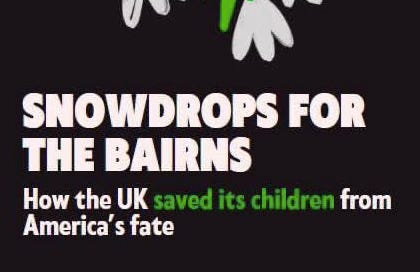



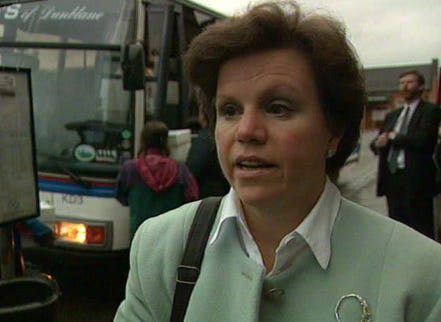

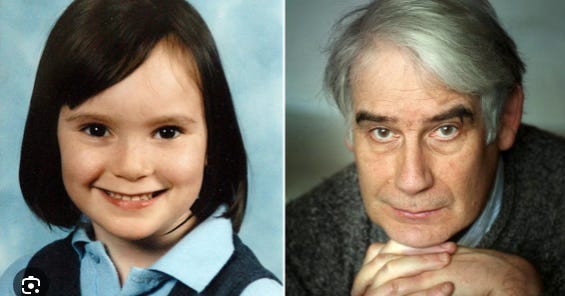
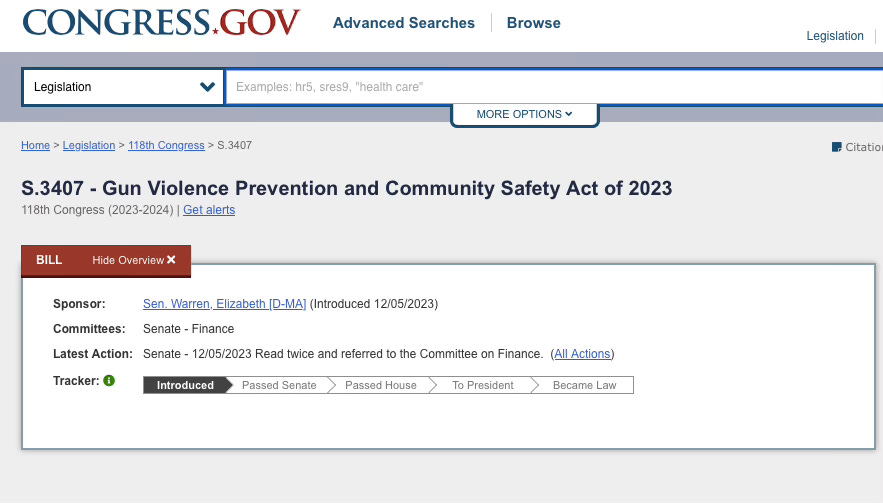
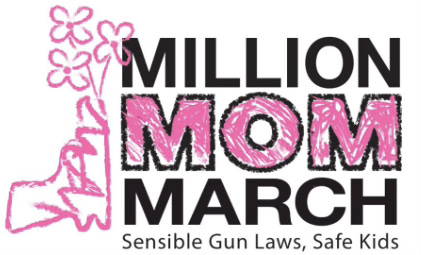
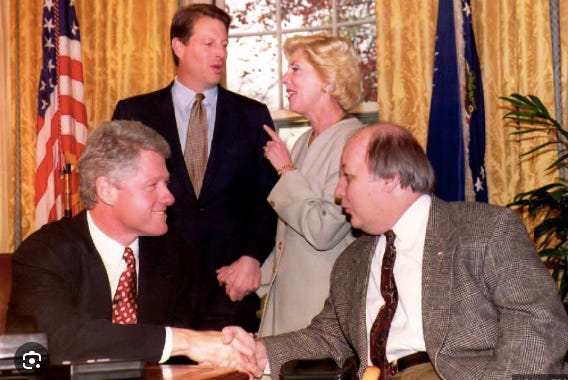
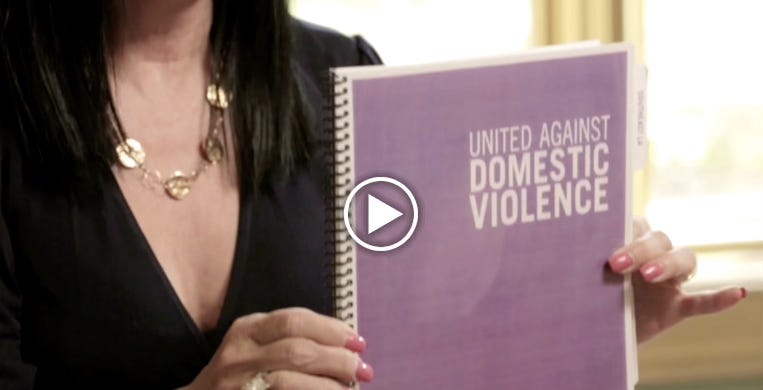
Thanks a lot for an excellent article which confirms that grassroots is the way to go. Scottish Self-Determination and Independence activists take note ! Right now I’m aware of two grassroots start-ups - RespectScottishSovereignty.scot (RSS) and the Angus / Highlands Pylon campaigns - but I’m betting your article will encourage other movements to take the plunge. The importance of targeting the Big Issue is highlighted. Scotland’s Big Issue at the moment is to implement the International Covenant on Civil & Political Rights (ICCPR) - a process which is entirely within Holyrood’s power.
I was saddened but not surprised that your friend was somewhat equivocal regarding the Scottish dimension of the Snowdrops parents and their marvelous campaign, but that old UK thing, as you'll know, is widespread. Another great piece from LGB and Dear Scotland.